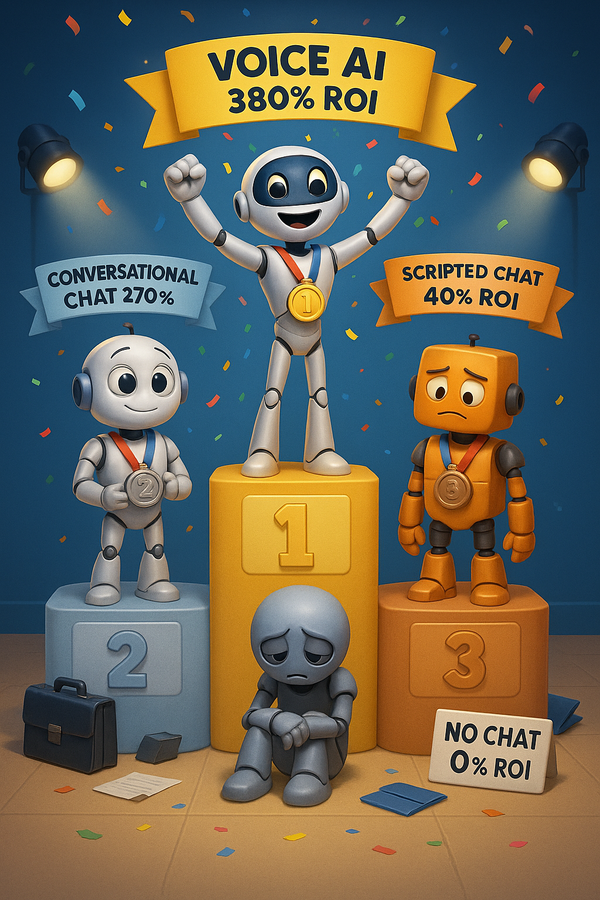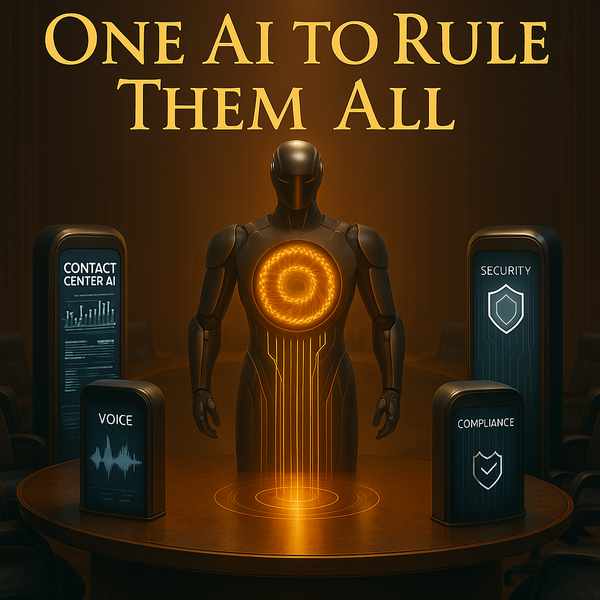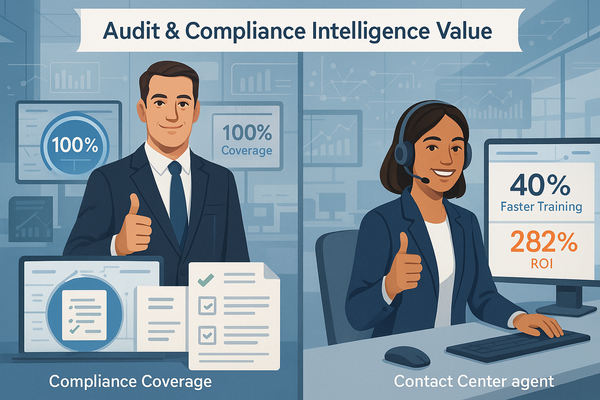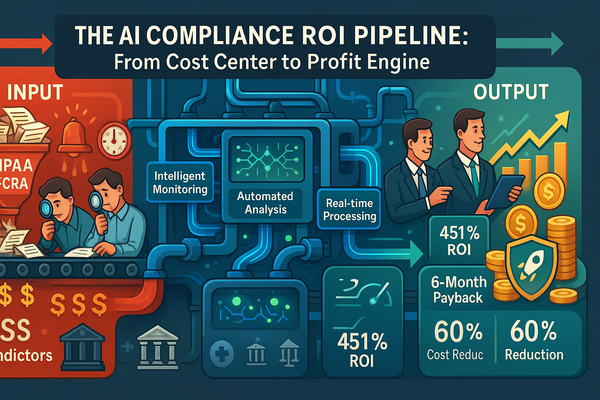The Agent Studio Wars Begin - Microsoft Dominates While Reality Check Emerges

🎯 Big Picture Enterprise Summary
The enterprise AI landscape has reached its pivotal "agent studio" moment, with Microsoft leading a comprehensive platform strategy that combines Azure AI Foundry, Microsoft Discovery, and enterprise-grade orchestration - while Gartner warns that "over 40% of agentic AI projects will be canceled by the end of 2027, due to escalating costs, unclear business value or inadequate risk controls". The market split is clear: Microsoft's integrated ecosystem approach versus specialized vendors building industry-specific solutions, as enterprises rapidly transition from AI experimentation to production deployment with 62% of companies increasing their AI investments in 2025.
🏢 Vendor Platform Intelligence
Microsoft's Agent Orchestration Dominance
Microsoft Build 2025 introduced the "general availability of Azure AI Foundry Agent Service" that enables developers to "orchestrate multiple specialized agents to handle complex tasks, including bringing Semantic Kernel and AutoGen into a single, developer-focused SDK".
Enterprise Translation:
- Best For: Organizations seeking comprehensive agent orchestration with Microsoft ecosystem integration
- Cost Impact: Access to "more than 1,900 partner-hosted and Microsoft-hosted AI models" with unified management
- Risk Factors: Deep platform lock-in as multi-agent workflows become business-critical infrastructure
- Adoption Timeline: Generally available now with enterprise customers already building production systems
Key Technical Breakthrough: Microsoft's "Model Router, designed to select an optimal model for a specific query or task in real-time" represents the first major platform implementation of intelligent model orchestration at enterprise scale.
AWS Strikes Back with AgentCore
Amazon Bedrock AgentCore "enables organizations to deploy and operate secure AI agents at enterprise scale with seven core services" while AWS commits "an additional $100 million in the AWS Generative AI Innovation Center to boost agentic AI development and deployment".
Enterprise Translation:
- Best For: Multi-cloud enterprises requiring vendor-neutral agent orchestration capabilities
- Cost Impact: Competitive pricing with AWS's established enterprise billing relationships
- Risk Factors: Newer platform with less enterprise deployment history than Microsoft's offerings
- Adoption Timeline: Preview availability with select enterprise customers including major financial institutions
Strategic Differentiation: AWS announced updates to "Strands Agents, a new developer tool that makes it dramatically easier to create AI systems where multiple AI agents work together to solve complex problems" - positioning for rapid multi-agent deployment across hybrid environments.
The Specialized Vendor Response
NVIDIA's Enterprise Blueprint Strategy: NVIDIA announced "new Blueprints to help build AI Agents for the enterprise" that will be able to "analyze data, distill insights, reason, and act" while feeding from "various data sources, including documents, images, and even video".
Accenture's Industry-Specific Acceleration: Accenture is "developing over 50 industry-specific AI agent solutions, which leverage new NVIDIA reasoning models, with a goal of 100 by the end of the year" through their AI Refinery platform.
🔄 Foundation Model Integration Spotlight
The Multi-Model Strategy Becomes Standard
Organizations are "much more sophisticated at mixing and matching multiple models to optimize across both performance and cost" with "37% of respondents now using 5 or more models as opposed to 29% last year".
Enterprise Reality: The days of single-model strategies are ending. "Enterprise software vendors will offer or extend integrated AI model marketplaces and platforms that support seamless model deployment, management, and updating" according to SAP's 2025 predictions.
Microsoft's R&D Platform Innovation
Microsoft announced "Microsoft Discovery, bringing agentic R&D to life by leveraging the latest innovations from Microsoft and the broader scientific ecosystem" for enterprises conducting research and development at scale.
Enterprise Impact: This represents Microsoft's expansion beyond traditional business applications into specialized enterprise R&D workflows, demonstrating the breadth of their agent platform strategy.
💡 Key Enterprise Term Definition: Agent Studio vs. True Agentic Orchestration
Agent Studio Marketing: Visual workflow builders with pre-built templates and drag-and-drop interfaces
True Agentic Orchestration: "AI orchestration to coordinate multiple agents and other machine learning (ML) models working in tandem and using specific expertise to complete tasks"
Enterprise Evaluation Criteria:
- Agent Studios: Focus on ease of use and rapid deployment with limited orchestration capabilities
- True Orchestration: "AI orchestrators could easily become the backbone of enterprise AI systems this year—connecting multiple agents, optimizing AI workflows and handling multilingual and multimedia data"
- Market Reality: Many vendors are "engaging in 'agent washing' – the rebranding of existing products, such as AI assistants, robotic process automation (RPA) and chatbots, without substantial agentic capabilities"
📈 Week's Key Enterprise Insight: The 40% Failure Warning
The Reality Check: According to a January 2025 Gartner poll, "19% said their organization had made significant investments in agentic AI, 42% had made conservative investments" - but Gartner predicts massive failure rates due to unrealistic expectations.
Success Differentiation Factors:
- Clear Business Value: "To get real value from agentic AI, organizations must focus on enterprise productivity, rather than just individual task augmentation"
- Proper Infrastructure: "Most organizations aren't agent-ready. What's going to be interesting is exposing the APIs that you have in your enterprises today"
- Strategic Implementation: "They can start by using AI agents when decisions are needed, automation for routine workflows and assistants for simple retrieval"
The Enterprise Budget Reality: "Innovation budgets still made up a quarter of LLM spending; this has now dropped to just 7%. Enterprises are increasingly paying for AI models and apps via centralized IT and business unit budgets" - signaling AI's transition from experimental to essential business infrastructure.
👀 What Enterprises Should Watch This Week
Platform Consolidation Acceleration
Monitor how Microsoft's comprehensive agent platform strategy forces competitive responses from Google, AWS, and specialized vendors. Microsoft's support for "Agent-to-Agent (A2A) and Model Context Protocol (MCP)" suggests they're building for ecosystem interoperability while maintaining platform control.
Enterprise API Readiness Assessment
"Most organizations aren't agent-ready" because of API infrastructure limitations, not AI model capabilities. The competitive advantage will come from enterprise systems integration speed and quality.
Industry-Specific Solution Maturity
Watch for the gap between general-purpose agent studios and industry-specific solutions like Accenture's vertical approach. Organizations like "ESPN, HPE, Noli and the UN, are already exploring how Accenture AI Refinery resources can help improve fan experience, sourcing, and engagement".
Critical Success Factors to Monitor:
- Multi-agent orchestration reliability in production enterprise environments
- Enterprise integration complexity as the primary deployment bottleneck
- Vendor "agent washing" vs. genuine agentic capabilities in platform evaluations
- Cost management as agentic AI transitions from innovation budgets to operational spending
The Bottom Line
The enterprise AI "agent studio" wars have begun, but success won't be determined by the most sophisticated interfaces or the largest model catalogs. With 40% of projects predicted to fail by 2027, the winners will be organizations that focus on business value delivery, proper enterprise integration, and realistic implementation strategies rather than chasing the latest agentic AI marketing promises.
Microsoft's comprehensive platform approach represents the early leader strategy, but the market remains dynamic with significant opportunities for specialized vendors who can solve specific industry challenges that general-purpose platforms struggle to address effectively.
The strategic choice for enterprises isn't between agent studios and traditional automation - it's between comprehensive platform strategies and best-of-breed specialized solutions, with success dependent on matching architectural approach to actual business requirements and organizational readiness.
Sources and References:
[1] Gartner Predicts Over 40% of Agentic AI Projects Will Be Canceled by End of 2027, Gartner Press Release, June 25, 2025
[2] Microsoft Build 2025: The age of AI agents and building the open agentic web, Microsoft Blog, May 19, 2025
[3] AWS announces new innovations for building AI agents at AWS Summit New York 2025, Amazon, July 16, 2025
[4] AI Agents in 2025: Expectations vs. Reality, IBM Think, August 4, 2025
[5] Transforming R&D with agentic AI: Introducing Microsoft Discovery, Microsoft Azure Blog, June 6, 2025
[6] AI in 2025: 5 Themes, SAP News Center, April 7, 2025
[7] How 100 Enterprise CIOs Are Building and Buying Gen AI in 2025, Andreessen Horowitz, June 19, 2025
[8] NVIDIA at CES 2025: 5 Massive AI Agent Announcements, CX Today, January 16, 2025
[9] Top Agentic AI Platforms in 2025: The Ultimate Guide for Businesses, Olive Technologies, April 1, 2025
[10] Accenture Expands AI Refinery and Launches New Industry Agent Solutions to Accelerate Agentic AI Adoption, Accenture Newsroom, March 18, 2025



